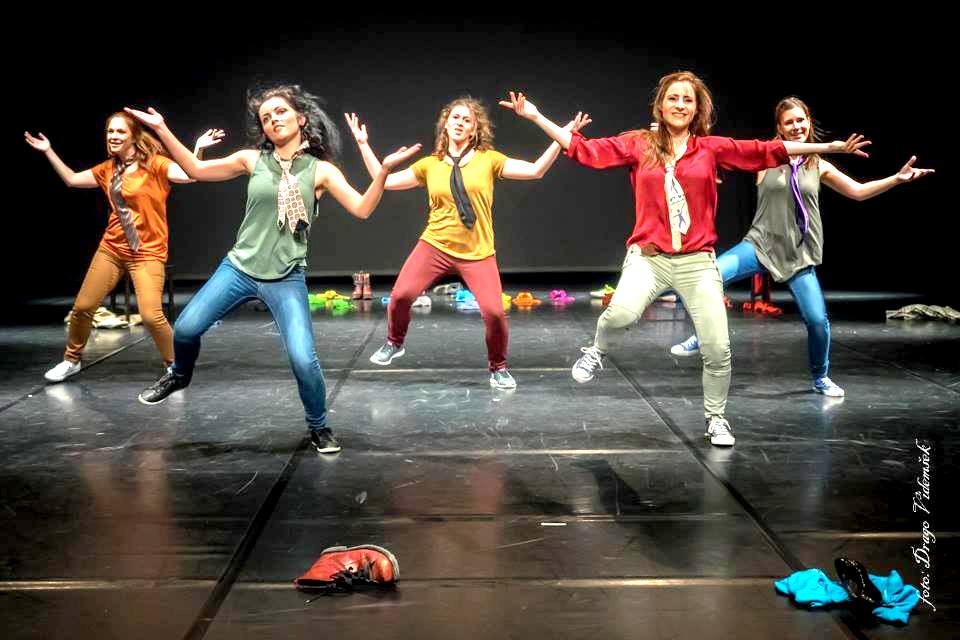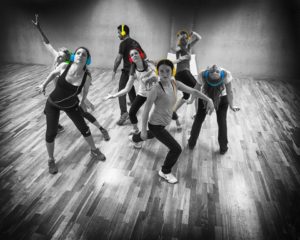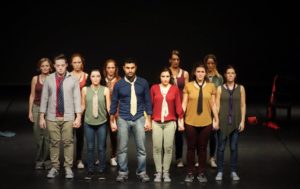‘Project 51’ 26 November 7:30 pm followed by Q&A chaired by Dr Aimee Shalan at Rich Mix, London.
By Rosa Pérez
Tell us a bit about Project 51. How did you come up with the idea?
The idea came to me after seeing the way the media reports on news coming from the Middle East -particularly Palestine – compared to the news coming from Europe or the West in general. The narrative and focus of the Western media sparked me to create Project 51. Having followed the Western media very closely during its coverage of the last war on Gaza (2014), its imbalanced reporting became very clear to me, especially if measured against incidents that attracted all the attention of Western media such as Charlie Hebdo.
Can you tell us a bit about your ‘Dabke journey’ if we may call it like that?
Dabke is widely popular in Palestine. We dance it at every wedding and even when we are walking in the street and if we feel like cheering the mood up, we dance dabke. It is infectious and everybody loves it. I started doing dabke as a child back home in Palestine, dancing at every wedding I came across in the neighbourhood. In London, I was one of the co-founders of a dabke group called Al Zaytouna. We started it as a means to express our identity and history, share it with people in Europe and change their perception of Palestine, distorted by the Western media. Our challenge was, and still is, to change this image and tell the true story of Palestine.
How would you describe the artistic process behind Project 51?
Tough and challenging, as in this play, I am stepping out of my comfort zone. Choosing the music was a long and enjoyable process of listening to many different tunes; some of them have never been used for dabke before. We settled on some mixed tracks, but the base is dabke. The fact that I have been working with two troupes, based in two different countries, in London (UK) and Ljubljana (Slovenia), has proved challenging and very enriching at the same time. I am very grateful to both of them. Special thanks go to the Slovenian peeps, Hava Dabke Troupe, who have worked tirelessly on some of the choreographies, which include many different styles not just dabke. We wanted to show the many directions in which dabke evolved through time. This allowed us to explore and has helped us to mix and diversify the dances.
Why ‘Project 51’?
I got the inspiration from the 51-day-long war on Gaza by Israel in the summer of 2014.
Can you reveal some of the music that will be featured in the play?
We already revealed some of it in the trailer, You can see it here. The music we used is by Acid Arab, they are an excellent group with some of the most amazing tracks.
Will London audiences see traditional dabke dance on stage?
Yes, there are some traditional dabke dances and some street dabke, but we also have some unique choreographies that merge different styles in one dance, which in my opinion have resulted in exceptionally beautiful pieces.
Are there any other Palestinian cultural references that have inspired you for ‘Project 51’?
Inspiration has come from different parts of the Palestinian culture, particularly the street music and the determination of the Palestinians to keep smiling in spite of the hardship that is imposed on them by the Israeli occupation. I was also inspired by Naji Al Ali, the Palestinian cartoonist with his most renowned drawing, Handala, which represents the determination of living with dignity. As I mentioned earlier, I was also rather stroked by how the Western media covers the news differently according to its agenda. This really pushed me to have the media hypocrisy as one of the main focuses of the play.
Project 51 premiered in Slovenia on 6 November. How was it received?
We received very positive feedback from many people after our performance in Slovenia, but we were also criticised on the style. What I gathered from all the comments we received is that, either way, people felt very strongly about it. This shows that ‘Project 51’ had a strong impact on the audience and I am very pleased about that.
Are you excited to bring Project 51 to London? What do you want people to take home after watching the play?
Yes, I am very excited to bring ‘Project 51’ to London, of course. Let’s see what London audiences take out of it on Saturday. The message that we are trying to convey is that no matter what the media and the politicians try to make one believe, Palestinians exist and will keep dancing.
Any future projects?
There are some projects in the horizon but cannot say much at the moment since they haven’t materialised yet. Stay tuned!



